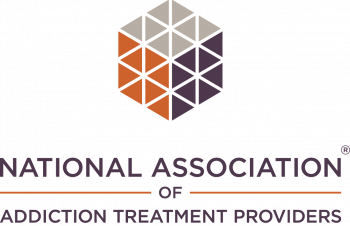The term addiction has taken on many meanings over the years. It has also been interchangeable with other terms such as substance abuse, dependency, and disorder. While the addiction definition may have a different meaning to different people, almost everyone agrees that addiction implies that a person has a drinking or drug problem.
The addiction definition also indicates that a person has a problem requiring professional help at an addiction treatment center. When assessing an addiction, it is important not to get too caught up in the meaning of the word. Instead, the concern should lie in the behavioral or mental health disorder that the user is dealing with. TruHealing Gaithersburg can help!
Addiction Definition: What Do Most Professionals Mean by That Word?
Addiction is a chronic and treatable medical disease in which a person exhibits compulsive and repeatable behaviors that they cannot stop despite the consequences.
While that definition can be left up to various interpretations, it is the meaning behind the definition that most treatment professionals are most concerned with. Treatment professionals are also interested in the root causes of addiction, such as:
- Life experiences
- Genetics
- Brain chemistry
- Environment
Is Terminology Important in Addiction Treatment?
The answer to that question is yes. Substance abuse treatment programs rely on accurate definitions and terminology to properly diagnose a symptom and communicate the diagnosis to a patient or client. Proper terminology also distinguishes a condition from all similar conditions, allowing treatment professionals to pinpoint the problem and fine-tune their treatment to solve the problem.
For instance, addiction, dependence, and abuse are often used interchangeably when discussing an alcohol or drug problem. However, each of these words carries different meanings and implications.
Addiction
Addiction is a brain disease that is manifested through compulsive behavior regardless of the consequences. A person who has an addiction allows the substance to control their life regardless of repeated attempts to stop using the substance.
Dependence
Dependence is characterized by symptoms of tolerance and withdrawal. A person who has an addiction may cause their brain or their body to become chemically or physically dependent on the substance while, at the same time, building a tolerance to it. When a person stops using the substance, the body reacts by exhibiting withdrawal symptoms or cravings.
Substance Abuse
Substance abuse is an umbrella that can carry a lot of meanings. A person who is abusing drugs or alcohol may have an addiction or dependence on the substance. Or they may be using it in a way that it was not intended. Or they may consume a large amount of the substance in a sitting. Substance abuse does not always imply addiction or dependency. It could just mean that a person is abusing a substance whenever they use it.
Understanding these terms and how they are applied in addiction treatment therapies is crucial to providing appropriate treatment to an individual. It does not make sense to diagnose an addiction to a person who occasionally binges but does not exhibit a pattern of binging. Likewise, it is not appropriate to downplay an addiction when a person has created a daily pattern of excessive drinking.
Learn More About Addiction at TruHealing Gaithersburg
Do you have an addiction to drugs or alcohol? If so, it is never too late to get help. The treatment professionals at TruHealing Gaithersburg can help you overcome your condition. Our drug addiction treatment program is designed to give you a fresh start and say no to drugs or alcohol for good. Contact TruHealing Gaithersburg at (833) 625-0398, or contact us online to learn the addiction definition and get started with your treatment program today.









